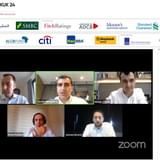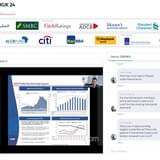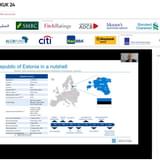Turkey’s consumer price inflation rose 8.79% last month compared to 7.64% in June according to a report from Schildershoven Finance.
This is higher than both the Turkish central bank’s 2016 inflation forecast of 7.5% and the average estimate for the July figure, which was at 8.16%, the report continued.
Despite coming in above expectations, it is unlikely that the most recent report on Turkish consumer price inflation will impact the near-term future policy of the country’s central bank.
“The Central Bank was already aware of higher inflation figures. Although factors such as volatile food prices may have caused difficulty in accurately placing expectations, the announcement does not qualify as a surprise or disappointment,” said Tatha Ghose, senior EM economist at Commerzbank.
He added that had the Central Bank not been expecting a rise, policy would have been impacted going forward, but noted that at the last MPC meeting the Bank was very explicit that there would be a sharply higher inflation reading for July.
Although not unexpected, there are concerns that higher than expected inflation figures will have a negative, albeit small effect on the Turkish bond market.
The country’s fixed income space has been affected, but this has come more in the form of deferrals of investment projects and a slowdown in the level of tourism.
This is only likely to change once the situation in the country begins to calm.
Similarly, low economic growth is having an effect on Turkey’s fixed income and currency.
Ghose noted that although not a new trend, Turkish economic growth could remain at 2% rather than at 4% for the next few years. “Our growth forecast for next year is 2.1%.”
Although growth remains low, it is unlikely to significantly impact Turkey’s bonds or currency due to the external economic environment.
“Turkey does have lira pass-through problems, but if generally low inflation globally means that central banks worldwide, including the Fed, are constantly revising their rate projections lower, then it is unlikely to cause a Fed tightening-driven EM crisis cycle again in the coming months,” Ghose stated.
He added that following recent events in the country, the markets do not seem to be too rattled by activity in Turkey.
The markets appear to have stabilised following the coup attempt on July 15 and 16.
“Turkish banks and corporates are not reporting major disruptions or investigation during emergency rule, but although there are no tangible effects, the cost of international funding is slightly higher for the country’s banks by around 30-40bp, however things are returning to normal.”
Despite the increased cost of funding for Turkish lenders, it is unlikely that there will be a slowdown of credit activity.
The Central Bank would likely become more active in terms of IRR and collateral requirement cuts if needed to negate a slowing of credit activity.
“We could see this kind of easing in the coming months. On the macroprudential side I think they will ease reserve and collateral requirements on loans quite significantly,” Ghose said.
Foreign interest in Turkish assets is also unlikely to wane in the coming months.
Ghose noted that when there is uncertainty, generalist investors follow domain experts in order to anchor their expectations, and thus momentum is created once the first movers have enough information and confidence to start buying.
“The perennially optimistic would say that you get about two chances to find value in Turkey, so everyone is currently jumping in,” he added.









